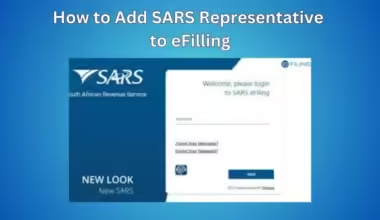As we go through the ups and downs of life, change is something we can always count on. Transferring from one educational institution to another is a significant change that students might want to consider. There may be some concerns that arise with this decision, particularly when it comes to the funding of your studies. Are you currently dependent on the National Student Financial Aid Scheme (NSFAS) and considering a transfer? You might be curious about whether NSFAS can continue to provide funding if you switch institutions.
Yes, there are indeed important factors to consider. NSFAS provides financial support to students enrolled in public universities or colleges in South Africa. So, if you’re transitioning between public institutions, NSFAS will still support your education as long as you meet their ongoing requirements. Unfortunately, if you’re considering transferring to a private institution, you won’t be able to receive NSFAS funding. NSFAS does not cover private education.
It’s important to note that altering institutions does not guarantee the assurance of your funding. Your application and academic standing will be re-evaluated each time you switch to ensure that you still meet the criteria set by NSFAS. These factors to consider are academic performance, financial need, and the specific requirements of the new institution. It is important to note that if your new institution has different standards or if you do not meet NSFAS’s ongoing conditions, there is a possibility that your funding may be at risk.
Basically, NSFAS will typically keep supporting your studies if you decide to switch to a different public institution. It is important to review the specific terms and conditions that apply, as they will be re-evaluated when you apply for funding at a different institution. Staying well-informed and taking a proactive approach to understanding NSFAS’s policies can greatly contribute to a seamless continuation of your educational journey, even if you switch institutions.
This comprehensive guide is here to address any questions you may have regarding NSFAS funding when transferring to a different institution. It is important to keep in mind that in order to continue receiving NSFAS support, you must follow their guidelines and meet the requirements of your chosen institution, even though you have the ability to make changes.
Can NSFAS Fund You If You Change Institutions?
It is not uncommon for students to switch institutions for a variety of reasons, such as pursuing better opportunities or finding a more suitable environment. The National Student Financial Aid Scheme (NSFAS) is dedicated to assisting eligible students in need by providing financial aid, while respecting their autonomy in making external decisions.
Students are free to change institutions without any restrictions from NSFAS. Our main objective is to provide assistance to students who meet our criteria, regardless of their chosen study location. If you’re thinking about making a change, you can be confident that NSFAS funding will still be available to support you, as long as you meet the eligibility requirements. Just a friendly reminder, when it comes to changing institutions, the choice is completely yours, even though NSFAS is funding your education.
NSFAS is dedicated to providing students with the opportunity to pursue their academic goals in the most favorable setting, which is why we prioritize flexibility.
What Happens To NSFAS Funding If I Switch From College To University
Making the transition from college to university can be an exciting step up the academic ladder, but it often raises questions about funding. One common concern is, “Will NSFAS still fund me if I move from college to university?” The National Student Financial Aid Scheme (NSFAS) supports educational advancement and is dedicated to helping students reach their full potential.
If you’re planning to move from a college to a university, it’s important to know that NSFAS funding doesn’t automatically cease. The scheme recognizes the value of continuing education and typically continues to support students who transfer to universities. However, there are a few key requirements to keep in mind.
First, ensure that your academic performance meets the necessary standards and that you’re enrolling in an approved program. Secondly, any changes in your study plan should be promptly communicated to NSFAS to avoid any funding issues. Moving from a college to a university usually signifies an upgrade in your education, whether it’s for a new program or a higher qualification level. NSFAS aims to support such positive developments.
In conclusion, if you’re considering transferring from college to university and wondering about your funding status, rest assured that NSFAS is likely to continue its support as long as you meet their criteria. This transition can open new doors and broaden your academic and career opportunities, and NSFAS is there to help you along the way.
What Happens To NSFAS Funding When You Change Courses Or Programs
Many students who receive funding from the National Student Financial Aid Scheme (NSFAS) often have concerns about changing courses or programs. People often ask about the implications of changing courses on their NSFAS funding.
In 2020, the Department of Higher Education made it clear that changing your course would not impact your NSFAS funding. Students have the freedom to explore various fields and discover a program that matches their career aspirations, all while being assured of continued financial support.
It is crucial to understand that, although NSFAS is accommodating of course changes, you are still required to fulfill the general eligibility criteria and requirements established by NSFAS. It is important to make sure that you are making satisfactory academic progress and that the course you are considering is eligible for funding from NSFAS.
So, if you’re thinking about making a change, you can be confident that your NSFAS funding will not be taken away just because you’re pursuing a different path. The NSFAS system offers recipients the chance to select a course that aligns with their goals, emphasizing their success and overall well-being.






